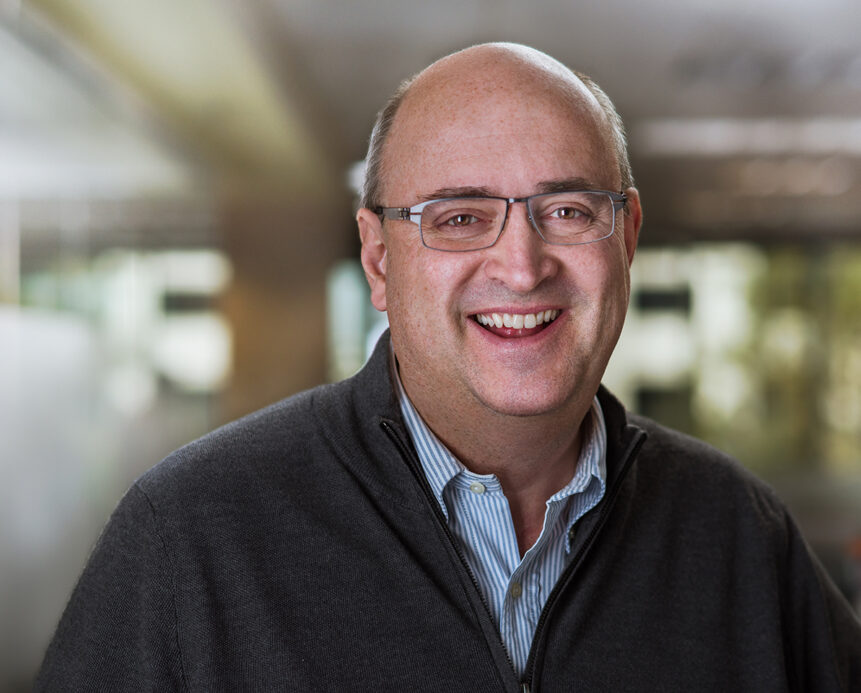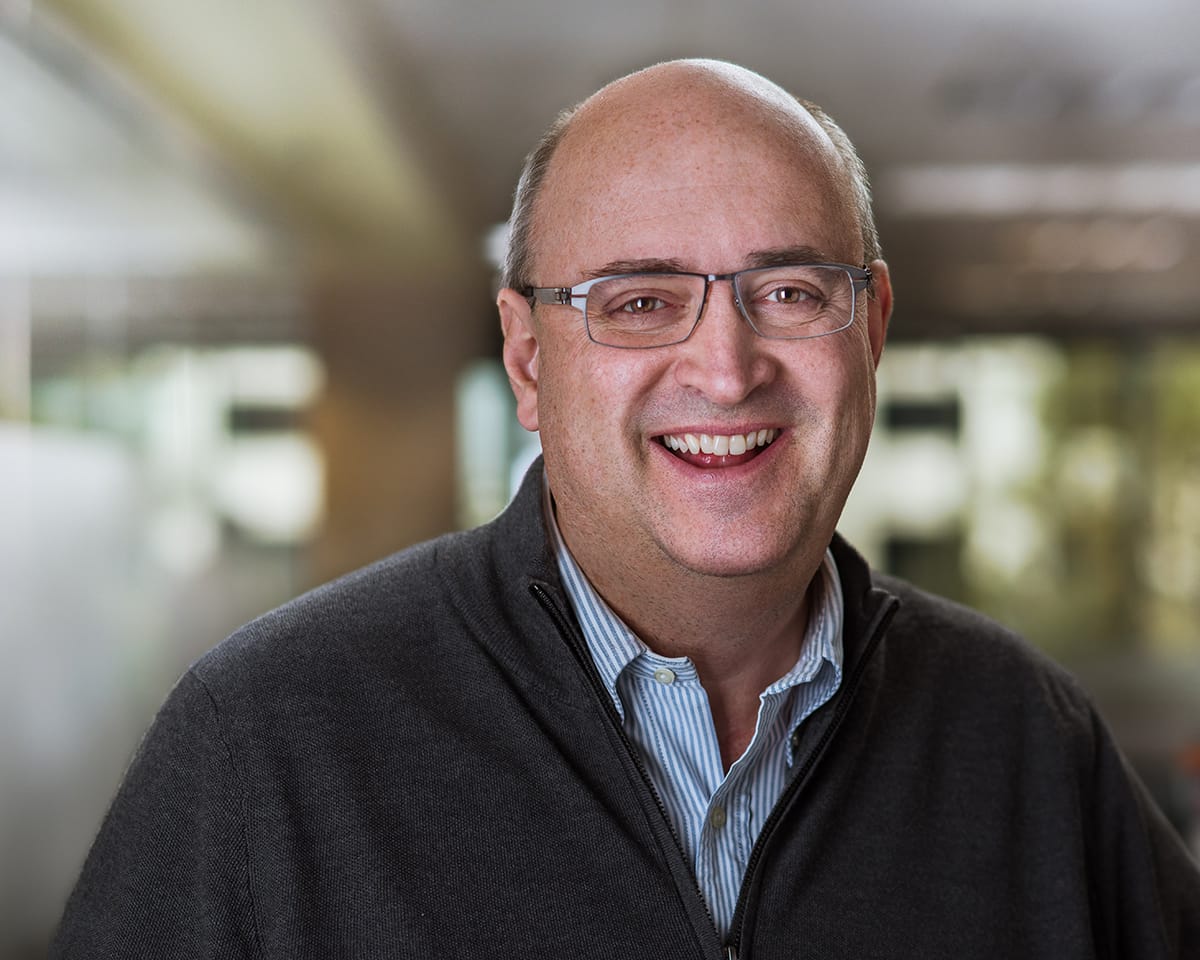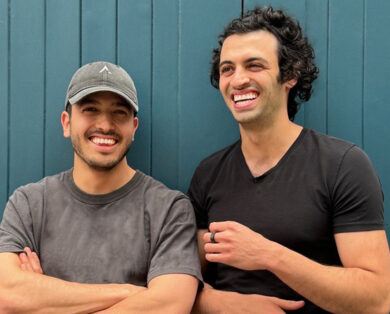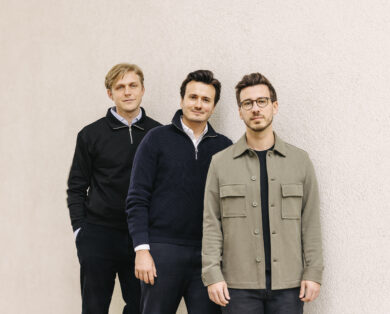- Portfolio News
- 15 July, 2024

We’re delighted to welcome the renowned SaaS and enterprise software expert, Dave Kellogg to our team. Dave will be supporting us with deal sourcing and advising the portfolio on B2B strategy, SaaS metrics and marketing.
We spoke to Dave about his career, love for computers and the advice he’d give to European founders approaching the US market.

Dave Kellogg
How did you get into technology and tech marketing?
I started out as a self-taught programmer. I was just one of those people that was naturally drawn to computers from a young age. I was in the computer club from Middle School through High School. I paid for college by programming in a computational seismology lab, and my first job out of college was in technical support at one of the original three relational database vendors, Ingres.My interest in marketing came a bit later while I was working at Ingres in Silicon Valley. We were fighting in this Clash of the Titans with our competitors. On our side we had database visionary and future Turing Award winner Michael Stonebraker representing technological excellence. On the other side, we had Oracle founder Larry Ellison, representing sales and marketing (S&M) excellence. To make a long story short, sales and marketing won.The other thing I noticed was how much money most software companies spent on S&M vs R&D: back in the day, it was typically a 3:1 ratio, today it runs closer to 2:1, and even with product-led growth businesses you’re usually talking at least a 1:1 ratio. If you judge a company’s priorities by its financial statements, then most enterprise software companies are closer to distribution businesses that make technology, rather than technology companies that seek distribution.That led to a bit of a lightbulb moment. I thought, “OK, this thing called sales and marketing — whatever it is — is really important. So I set out to learn what it was.I moved back to New York from the West Coast and began working in the Ingres sales office in New Jersey. While I was still theoretically working in technical support, all of a sudden I was surrounded by salespeople and watching us win or lose deals from a front-row seat. I quickly got involved in lots of sales calls and decided I wanted to be in marketing. So I called up a friend of mine in product marketing and said that I wanted to be a competitive analyst. That served as my career bridge into sales and marketing. A few years later, I was running product marketing at Ingres, then a $250M company.But I wanted breadth, so I went to another database startup, received a battlefield promotion when the executive team was “rotated out,” and found myself running all of marketing at an enterprise software startup at about 30 years old. A few years later, a headhunter called with an interesting opportunity: some French $30M startup that just went public was looking for a database-oriented VP of Product Marketing. Their product and financials were amazing. But the trick was you had to move to Paris.
How did you end up in Europe at Business Objects?
I was early in my career and aggressively looking for ways to build my breadth of knowledge, so the idea of gaining international experience strongly appealed to me. I thought there was a great opportunity in the space (business intelligence), the S-1 was pristine and revealed a very high-quality business, and I really liked the people (even though a lot of them came out of Oracle), so it seemed like a great fit. Plus, my wife is French, so it was a good opportunity to spend more time with her family. I took the job, we sold our house, and we relocated to Europe — all when my wife was sufficiently pregnant with our second child that Air France barely let her on the plane.That company, of course, was Business Objects where Bernard Liautaud was the CEO and co-founder. I originally came in to run worldwide product marketing and over time took on additional responsibilities, and in a few years became the overall head of marketing.We stayed in France for five years and loved it. Leading marketing at Business Objects, I travelled all over Europe and around the world. Since then, I have maintained many ties with Europe, running two US companies as they embarked on European expansion, advising and consulting with others, and serving on the boards of two European startups.
What drew you to take this role at Balderton?
I have marketing DNA so I am thus required to answer everything in threes.
- The people. I am quite impressed with the quality of the people I’ve met at Balderton and the portfolio companies I’ve thus far engaged with.
- The work. I love both teaching and learning and this opportunity will allow me to do plenty of both — sharing what I’ve learned over 30 years in enterprise software all while learning from some of the smartest innovators in technology.
- The location, i.e., Europe. I love working with European startups for numerous reasons and enjoy serving as a cultural and best practices bridge between Silicon Valley and Europe.
What do you expect to do as Balderton’s first Executive in Residence?
I always joke that my job as an advisor is essentially “CEO tech support” so I’ve basically come full circle back to my first job in enterprise software. Primarily, I’m there to talk to founders and startup executives to share what I’ve learnt as the head of marketing at two startups, the CEO of two others, a GM at Salesforce, an independent director of 6 startups, and an advisor to many more One of the things I hear regularly from founders is that they struggle to understand go-to-market strategy and in particular, marketing, so I see that as an area I can really help with. I also enjoy pressure-testing strategy and positioning, so I can find holes before the market does.I also expect to spend time working with Balderton itself in, well, three ways:
- Thought leadership, including developing new and/or syndicating existing (often, Kellblog) content that continues to position the firm as a thought leader in building software companies.
- Growth acceleration, working with the growth team to codify and share best operating practices, support portfolio-company learning and networking events, and working on measuring and benchmarking through the appropriate use of SaaS metrics.
- Deal support, helping the team with analysis, diligence and/or sourcing potential investment opportunities.
How do you think European entrepreneurs have changed since you worked here in the late 1990s?
I’ll talk about the French market specifically as that’s the market I can compare to best.One of the main things I believe has changed is the mentality of founders. When I lived in France 20 years ago, it seemed the typical French entrepreneur wanted to have a very large piece of a relatively small pie. They were looking to retain a large amount of ownership, wanted a high degree of control, and didn’t want the dilution that comes with raising venture capital. Additionally, they seemed to prefer a France-first geographic expansion strategy: they would start the business in France and want to build it up in France first, and then slowly expand into neighbouring countries, tending to defer the more difficult expansions into the Americas or Asia-Pacific.Now, I think French founders realize they can build more impactful companies and create more value by raising venture capital, taking some dilution, expanding more aggressively, and end up owning a somewhat smaller piece of a much, much larger pie. Their ambitions are completely different. They want to build an industry giant and they’re prepared to accept help along the way to reach that goal. That’s closer to the Silicon Valley model and you can see it everywhere now in Europe. By the way, I think Bernard and Business Objects had a big impact on the French tech ecosystem in terms of showing founders that the Silicon Valley model of building a large company was a route to success.
What should Europeans think about when approaching the US market?
This is a big topic that I hope to expand upon more fully during my tenure at Balderton. But, (here we go again with the rule-of-three), there are three things that come to mind.First, you really need to understand the geographic distribution of industry and talent in the US. It’s a huge country and verticals are clustered in cities. So you need to think about your go-to-market strategy more than about your marketing strategy. For example, if you need to focus on finance, you need people in New York. If it’s manufacturing, you need people in Chicago, for energy, it’s Texas, for media and entertainment it would be both New York and LA.This differs a lot from Europe where founders tend to set up bases in the capital cities. In the US, if you just base people in Texas, for example, you’re going to risk only selling to Texan energy companies.On the other hand, you can’t just solve the problem by putting people in every major city because you run the risk of being spread very thin. You have to really consider your sales strategy and go-to-market approach from day one.The second piece of advice I would give founders is this: get yourself a mentor that knows about marketing! Don’t be afraid of marketing. Get as much advice as you can. Try to learn everything you can. It’s going to matter a lot, probably more than it does in Europe, and it’s not always easy to figure out where to focus.Finally, I would say don’t underestimate the impact of industry analysts on US buyers. There isn’t a big analyst culture in Europe, but the big powerhouse brands like Gartner are very influential in the US. Not engaging with them can hurt you a lot. If you’re selling directly to SMBs you might just get away with it. However, the bigger the company you’re selling to and the bigger the price tag of your product, the more they matter. You need to be really good at analyst relations.
And finally, where can we find you outside of work?
I like to keep busy. On the work front, I advise about a dozen startups in various ways and do a modest amount of angel investing. I’m active on social media, including my blog (Kellblog), my Twitter feed, and a new podcast (The SaaS Product Power Breakfast) that I’m creating with Germany-based HRtech guru Thomas Otter and which we record live on Clubhouse. I’ve also done numerous appearances on other podcasts of late, typically on strategy, marketing, or SaaS metrics. Finally, as we speak, I’m working on my presentation for this year’s SaaStr Annual entitled A CEO’s Guide to Marketing, designed to help CEOs and founders manage some of the “marketing understanding” issues addressed above.On the personal front, family (including my wife and four kids) is always a key priority. And when I have some time for myself, you can typically find me outdoors, hiking or fly fishing. As we anglers like to say, “the fishing is always good, even when the catching isn’t.”
You can also read more about Dave’s appointment and work at Balderton in our Press Release.














